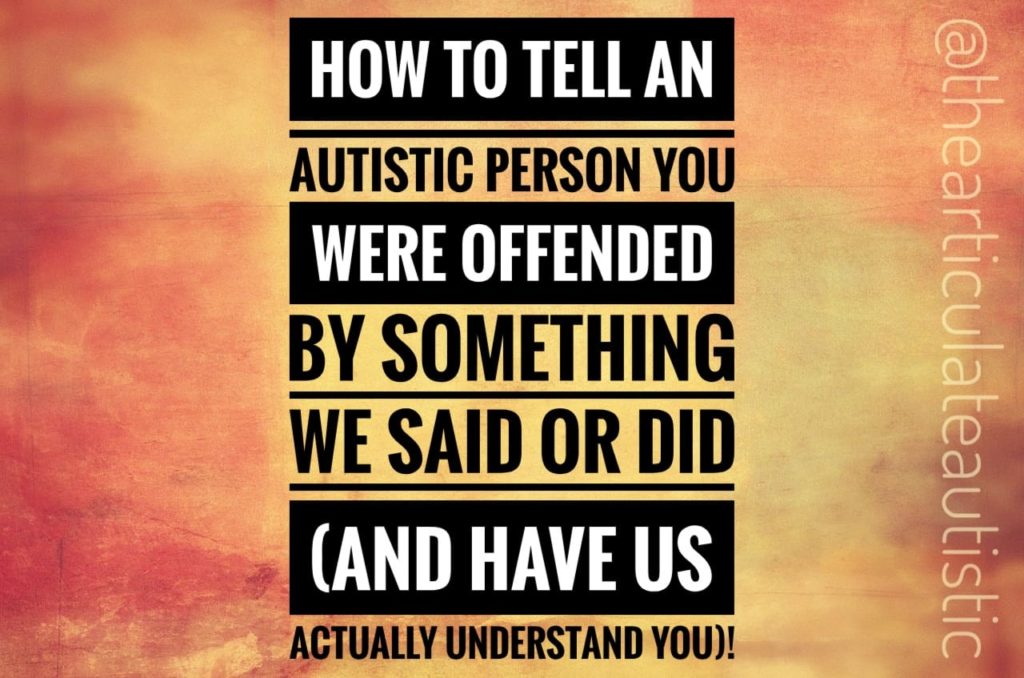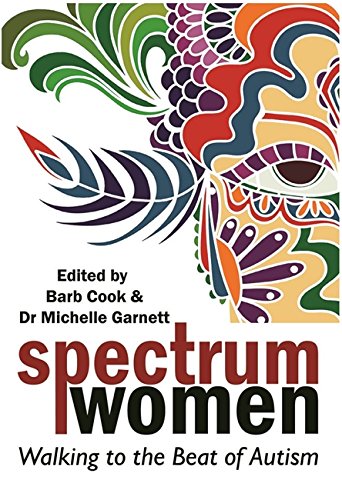“You Are So Defensive!!”
Trigger Warning: Mild verbal abuse/autistic meltdown

“You are so defensive!!”
This is a direct companion piece to my apology post. I think this is a statement (or accusation, depending on how you look at it) that many neurodivergent people have heard in their lives.
I used to hear it ALL THE TIME. I haven’t had it happen in a while, but lo and behold, somebody commented yesterday that that’s how I was being when I tried to offer an explanation for why I phrased something the way I did.
So, this question is for neurotypicals, what does the word “defensive” mean to you really?
Because I know how frustrating and hobbling it can be to make a social error unknowingly, have someone point it out, try to explain themselves, and then get accused of being defensive.
It feels like gaslighting.
(Article continues below.)
The best way to improve communication with your autistic loved one is to understand how your autistic loved one’s mind works! Intentions, motivations, and personal expressions (facial expressions or lack thereof, body language, etc.), are often quite different in autistic people than they are in neurotypical people.
Experience a better understanding of your autistic loved one by reading books about life from an autistic perspective as well as stories that feature autistic characters. You’ll have so many “Ah ha!” moments and start seeing your autistic loved one in a different light (and you’ll have a better understanding of their behaviors, which you may have been misinterpreting up until now).
Books I recommend for a better understanding of your autistic loved one:
Example:
Background: Myra is 14 years old and autistic, but neither she nor her parents are aware of it. Her entire family is frazzled by Myra’s behavior and apparent “mental health problems”, so they are usually wound up like springs waiting for some type of outburst from Myra that they do not understand. In other words, the tension is always there like a snake waiting to strike.
Myra (autistic): “Aunt Bea, why are you wearing bright yellow underwear beneath sheer white pants?”
Aunt Bea (neurotypical): *gasps audibly and stares at her niece in open-mouthed shock*
Myra’s mom (neurotypical): “Myra, you apologize right now!”
Myra (looking confused from her aunt to her mother): “What? Why? I didn’t do anything!”
Aunt Bea: “How could you say something about my underwear?! Ladies don’t talk like that!”
Myra (feeling shaky, queasy, and embarrassed): “I didn’t think you wanted to go to church like that!!”
Myra’s mom (misunderstanding the literal statement as rude sarcasm): “This is ridiculous! Just apologize to your aunt!”
Myra (red-faced and near tears–all the trauma of past misunderstandings bubbling to the surface): “I didn’t do anything wrong!! Why are you always yelling at me for nothing?!?”
Myra’s mom (through clenched teeth): “This is not ‘nothing’. I’m sick of your attitude!”
Myra (staring wide-eyed, her mind racing, her mouth going dry): “I was just trying to–“
Myra’s mom (gesticulating wildly while shouting): “You are so defensive! Stop making excuses and just apologize. That’s all you have to do!”
Myra is anti-apologizer, like I was at her age.
Myra (covering her ears and screaming): “No!! No, I won’t!! I don’t understand. I don’t understand. I don’t understand.”
(Meanwhile, Aunt Bea has quietly crept away, presumably to change her pants before she goes to church, Mom has walked outside for a smoke, and Myra is rocking back and forth in the corner, tears streaming down her now expressionless face as she whispers over and over: “I don’t understand. I don’t understand. I don’t understand.”)
This is the kind of incident that can ruin a day and break an autistic person’s heart and trust, not to mention confuse the heck out of everyone!
Granted, this family desperately needs counseling and a diagnosis for Myra in this case, but the defensiveness thing has always confused me.
Yes, Myra WAS defending herself, and with good reason. No, she was not acknowledging wrongdoing, but for her, a wrongdoing hadn’t been committed, and she was (in her mind) being suddenly screamed at and stared at like she’d just cursed a blue streak in front of the good Lord Himself!
It’s incredibly confusing for us to go through this. That’s why it’s so important to be very specific when explaining why something your autistic loved one said or did was offensive using the following formula.

Follow me on Instagram.
Want downloadable, PDF-format copies of these blog posts to print and use with your loved ones or small class? Click here to become a Patreon supporter!







